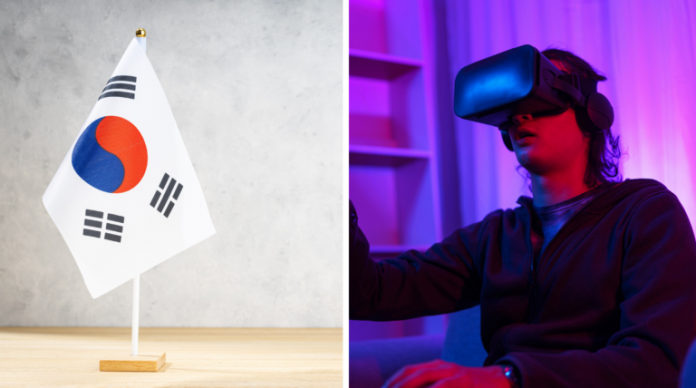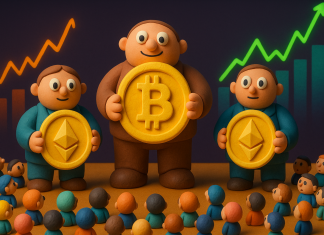
South Korea’s government set the tone early in 2022 for the country’s interest in getting a lead in the so-called metaverse world, announcing in January a US$170 million fund to invest in the virtual reality idea and its digital technologies.
The funds are to set the stage for the country to be in the top five nations in metaverse developments by 2026, with South Korean President Yoon Suk-yeol saying the technology is a national priority. Minister of Foreign Affairs Park Jin doubled down on that message at the forum for Global Innovation in Seoul on Dec. 9, saying the country is set to be a powerhouse of the metaverse.
Such proclamations are generating buzz – U.S. filmmaker James Cameron renowned for his use of special effects in movies was at the Seoul conference – but other industry insiders question the vision and what the technology is supposed to achieve.
The metaverse refers to a network of 3D virtual worlds – typically accessed through virtual reality headsets and avatars – as part of a decentralized Internet, or Web3, built around blockchains, the underlying technology of cryptocurrencies.
However, Phil Spencer, the chief of Microsoft Gaming and head of Xbox, recently dubbed the metaverse a “poorly built video game.”
An Dong-wook, chairman and chief executive officer of South Korea’s AI and metaverse company Miso Information Technology, has another view.
“[The internet] helped humans overcome the limits of time and space — but it is not effective in situations that require in-person communication or emotional interactions,” he said in a Forkast interview. “That’s why the metaverse is striving to produce the replica of a real-life environment.”
An said South Korea has the potential to lead the metaverse age, powered by the global popularity of the country’s cultural content, such as K-pop, adding that locals quickly adapt to new technology.
Metaverse love
Taking the lead from the government, South Korean companies and local governments have piled into metaverse projects.
The capital Seoul is building its virtual replica in a project to provide citizens with digital civil services. City governments such as Busan, Seongnam and Gumi have announced similar metaverse initiatives.
Eastern Gyeongbuk province proclaimed itself as a ‘metaverse capital’ of South Korea, announcing a five-year initiative to invest US$13.8 million into what it called the local metaverse economy. It estimates this will add US$780 million of value to the region.
South Korean internet giant Naver has set up Zepeto, a metaverse platform that it says has 20 million monthly active users or one of the largest in Asia. The rival Ifland metaverse run by telecommunications leader SK Telecom attracts users with K-pop brand collaborations.
Naver’s metaverse unit has joined hands with the Solana blockchain to develop a new platform ZepetoX, which is expected to allow users to monetize their activities with cryptocurrency income. Ifland is already allowing some users to cash out in-platform points and rewards.
Financial institutions and banks in Asia’s fourth largest economy have also set up shop in the metaverse.
Shinhan Financial Group, KB Kookmin Bank and NH Nonghyup Bank, have either launched virtual branches on the metaverse or their own virtual platforms to attract the tech-savvy to their financial products.
Moreover, South Korean companies reportedly trail only the U.S. in the number of metaverse-related patent applications for virtual reality and augmented reality since 2016, owning 19% of the 7,760 applications filed. The U.S. and South Korea account for 75% of the total.
Games vs metaverse
South Korea’s Science Ministry defines the metaverse as a space where virtual and physical reality converges that people or objects can interact, and create economic, social and cultural value.
The definition has upset some South Korean online game developers, especially after the authorities said they will not regulate metaverse platforms according to existing laws for game developers.
This reaction came as South Korea’s video gaming sector remains tethered to strict rules and an unsavory reputation that local experts say are outdated and unfair.
Video games are generally seen as the nemesis of school kids and teenagers in South Korea, where the pressure to get higher grades and into the best universities is especially intense. It was only this year that South Korea abolished the so-called Shutdown Law, which was in effect for 10 years and banned under-16 players from online games between midnight to six in the morning.
One of the more recent South Korean restrictions on video games that added to the controversy is the outright ban on incorporating blockchain elements into games, including the popular play-to-earn (P2E).
“I call it cognitive disorder,” Henry Chang, the CEO of South Korea-based blockchain game developer Wemade Co., said in an interview. The metaverse is like a game but can’t be classified as a game because it would be banned, said Chang.
Kim Jung-tae, professor of gamification at Dongyang University, compared current policies of separating games and the metaverse to a “comedy.” Kim said although the metaverse is very much a video game, when framed as a “game” an instant negative connotation follows.
Park Hye-jin, a professor at the Venture Capital MBA program at Seoul School of Integrated Sciences & Technologies, said the metaverse has game elements, but also has a much bigger potential as a social platform and for economic activities.
“New products and services using new technologies need support from industry self-regulation and regulatory sandboxes, not from existing laws or pre-deliberations,” he said.
SK Telecom’s Ifland metaverse, which recently added the cashable point system to the platform, told Forkast: “Ifland is a social metaverse service, and is not related to games.” It compared Ifland to Youtube.
While the game-not-a-game debate continues in South Korea, An of Miso Information Technology said the country should continue its investment in the metaverse, but disperse it across a wider range of platform developers.
This is the time for the country to experiment and let its metaverse sector grow, he said.
Danny park(2022.12.29) “South Korea keeps betting on the metaverse, ignoring the current clunky technology”
retrieved from hhttps://forkast.news/metaverse-south-korea-current-clunky-technology/






